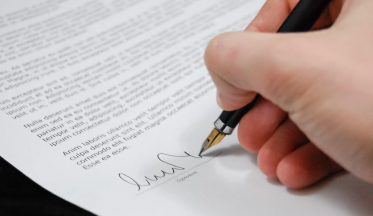Have Questions? Contact Us.
Since its inception, NYCLA has been at the forefront of most legal debates in the country. We have provided legal education for more than 40 years.
March 23, 2023
The New York County Lawyers Association supports the passage of a proposed amendment to New York State Civil Rights Law §40-b to prevent venues hosting sporting events from refusing entry to ticket customers who have criticized them.
A number of media outlets have reported that Madison Square Garden Entertainment (MSGE) is refusing admittance to attorneys whose law firms represent clients in litigation against it, even when they hold valid tickets. According to a recent article in the New York Law Journal, the ban has been “imposed against some 90 law firms that are representing clients with lawsuits against MSGE.” See Jason Grant, “Inside Randy Mastro and Larry Hutcher’s Clash Before First Department Over Legality and Policy Implications of MSG ‘Lawyer Ban,’” New York Law Journal, March 8, 2023 The ban is apparently enforced by using facial recognition technology to identify the lawyers, typically at the time they enter. In one incident, a lawyer was removed from the lobby of Radio City Music Hall as she was arriving with her daughter for a show. See Sarah Wallace and Tom Shea, “MSG Entertainment Lifts Ban for Some Lawyers Involved in Lawsuits Against Company,” NBC New York, February 8, 2023.
The ban is a clear effort to dissuade lawyers from representing clients with prospective cases against the company and diminish access to counsel. It is also inappropriate given the position MSG occupies in the community. MSGE receives public benefits because sports teams and cultural events are supposed to serve a public purpose. For example, it has been granted an annual tax exemption valued at approximately $40 million per year. See Zach Williams, “NY Democrats threaten facial ID lover James Dolan over $42M MSG tax break,” New York Post, March 14, 2023. Ejecting lawyers who are merely doing their jobs by representing clients in litigation is inconsistent with that position of public trust and with principles of public access and accommodation.
An existing statute, New York State Civil Rights Law §40-b, prevents “places of public entertainment” from denying entry to a person “over the age of twenty-one years who presents a ticket of admission a reasonable time before the commencement thereof” or ejecting them without valid purpose. It states that “[t]he places of public entertainment and amusement within the meaning of this section shall be legitimate theatres, burlesque theatres, music halls, opera houses, concert halls and circuses.” MSG has claimed that the law does not apply to it because this list of entertainment venues does not explicitly include “sporting events.” Legislation has been introduced in the New York State Senate and Assembly to remedy any ambiguity that might be claimed to exist by specifically adding “sporting events” to the list of “places of public entertainment” covered by the statute.
This amendment would merely recognize the intuitive fact that sporting events are a form of “public entertainment and amusement” like the other venues and events specifically listed in the statute. Sports stadiums should be no more able than theaters, circuses, or opera houses to deny entry to ticketholders who want only to peaceably attend an event.
NYCLA supports its enactment.
